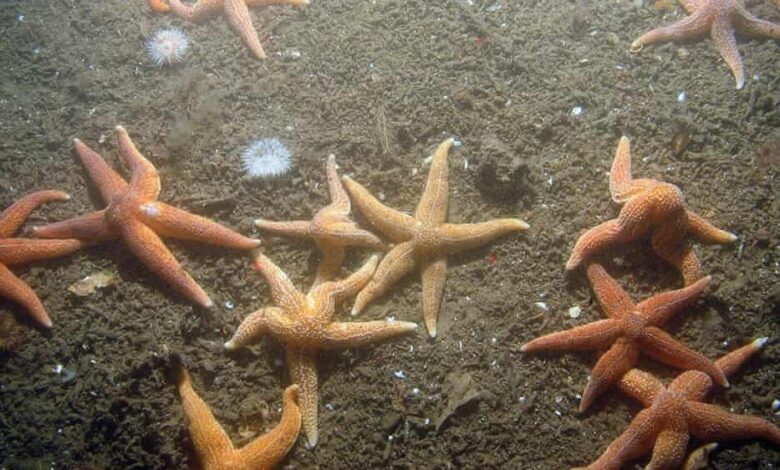
Common starfish and sea anemones on Dogger Bank. Proposals to ban damaging bottom trawling in the area could be a first step to the recovery of a rich array of wildlife. Photo Credit: JNCC/PA
Environment United KingdomBiodiversity Win for Britain’s Seas with This Fishing Ban
Conservationists welcome the United Kingdom’s decision to ban bottom trawling fishing in the North Sea as the technique is destructive for marine life and fish alike, helping restore and preserve important habitats.
“It is a really big day for Britain’s seas, where bottom trawling has degraded the environment for 100 years. It’s the start of us having a pride in our seas again and it makes my job worthwhile,” says Dr. Jean-Luc Solandt, a specialist in Marine protected areas (MPAs) at the Marine Conservation Society. “The Dogger Bank is the size of south Wales, so what’s very exciting is that, at last, we have a conservation measure that will recover something. It’s good for recovery of biodiversity and for resilience.”
Bottom trawling, a fishing technique that consists of dragging weighted nets over the sea bed, would be illegal in four MPAs, including the Dogger Bank – a 12,300 km2 area – which is a breeding ground for commercial species of fish like cod, whiting, and sand eel, and a food source for kittiwake, puffin and porpoise. Close to a quarter of UK territorial waters have been converted into MPAs as a means to protect ecosystems and species like the harbor porpoise and the dolphin. The UK’s goal is to protect 30% of ocean biodiversity by 2030.



